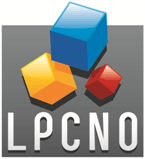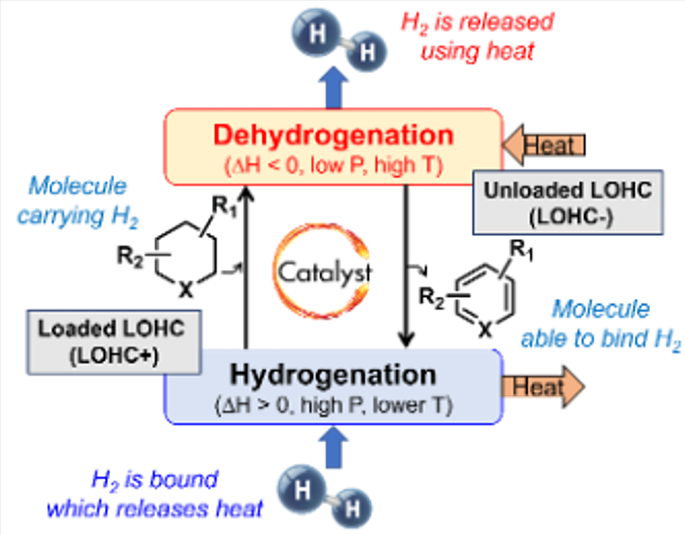MAGNETIC INDUCTION MEDIATED DEHYDROGENATION OF LIQUID ORGANIC CARRIERS (LOHCs)
CHEMISTRY & GREEN CHEMISTRY

Lab: LPCNO
Duration: NanoX master Internship (8 months part-time in-lab immersion)
Latest starting date: 15/10/2025
Localisation: LPCNO 135 avenue de Rangueil
31077 Toulouse - FRANCE
Supervisors:
Katerina SOULANTIKA ksoulant@insa-toulouse.fr
Pierre FAU pfau@insa-toulouse.fr
This research master's degree project could be followed by a PhD
Work package:
Magnetic induction offers the possibility to directly heat a magnetically responsive catalytic bed in a localized, rapid, and energy efficient manner, without heating the entire reactor. The rapid heating and cooling of magnetically activated catalytic systems is especially well-adapted to the intermittence of renewable energy, offering promising new perspectives for process intensification.1 In the context of CO2 emission reduction, H2 will have increasing importance as an energy vector. Improving H2 storage capacity/rate while reducing energy consumption are major issues of H2 storage technology. Liquid organic hydrogen carrier (LOHC) systems are composed of pairs of hydrogen-lean and hydrogen-rich organic compounds that store hydrogen by repeated catalytic hydrogenation and dehydrogenation cycles (Figure).2 The methylcyclohexane/toluene LOHC system presents numerous challenges to address for an efficient implementation in chemical hydrogen storage with liquid molecules.3 In the framework of a new ANR project that has been recently accepted, methycyclohexane dehydrogenation to toluene and hydrogen has been chosen as a challenging endothermic and catalytic model reaction. In this framework, the LPCNO aims at designing efficient dehydrogenation catalysts activated by magnetic induction for the model reaction of methylcyclohexane dehydrogenation to toluene.
The objective of this internship will be the evaluation of the
performances of magnetically activable catalytic beds in the dehydrogenation reaction of toluene. For this, magnetic nanoparticles will be prepared by the organometallic method4 and characterized by conventional techniques (TEM, XRD, ICP). Their magnetic and heating properties will be explored in order to improve the heat transfer and energy efficiency by varying frequencies and amplitudes of the magnetic field. Depending on the degree of response to an alternating magnetic field, the nanoparticles will be integrated in catalytic beds of different compositions and different configurations. Their catalytic properties will be explored in order to study their impact on the overall catalytic performance in the dehydrogenation of methycyclohexane, when submitted to inductive heating. The student will also actively participate to the preparation of the set-up that will serve for the catalytic tests.
All these skills should allow the student to candidate to the PhD thesis that will start next year in the framework of the
ANR project.

References:
1. Mazarío J., Ghosh S., Varela-Izquierdo V., Martínez-Prieto L. M., Chaudret. B. ChemCatChem 2025, 17, e202400683.
2. Preuster P., Papp C., Wasserscheid P., Acc. Chem. Res. 2017, 50, 1, 74–85
3. Okada, Y.; Sasaki, E.; Watanabe, E.; Hyodo, S.; Nishijima, H. Int. J. Hydrogen Energy 2006, 31, 1348– 1356
4. Estrader M., Soulantica K., Chaudret B Angew. Ch. Int. Ed., 2022, 61, e202207301
Areas of expertise:
Magnetic nanoparticles, magnetic induction, catalysisc
Required skills for the internship:
Chemist with some knowledge on nanoparticles synthesis and catalysis
